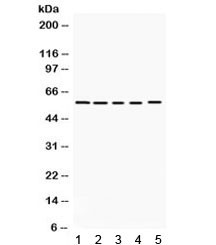Cookie preferences
This website uses cookies, which are necessary for the technical operation of the website and are always set. Other cookies, which increase the comfort when using this website, are used for direct advertising or to facilitate interaction with other websites and social networks, are only set with your consent.
Configuration
Technically required
These cookies are necessary for the basic functions of the shop.
"Allow all cookies" cookie
"Decline all cookies" cookie
CSRF token
Cookie preferences
Currency change
Customer-specific caching
FACT-Finder tracking
Individual prices
Selected shop
Session
Comfort functions
These cookies are used to make the shopping experience even more appealing, for example for the recognition of the visitor.
Note
Show the facebook fanpage in the right blod sidebar
Statistics & Tracking
Affiliate program
Conversion and usertracking via Google Tag Manager
Track device being used

| Item number | Size | Datasheet | Manual | SDS | Delivery time | Quantity | Price |
|---|---|---|---|---|---|---|---|
| NSJ-R32012 | 100 µg | - | - |
3 - 10 business days* |
772.00€
|
If you have any questions, please use our Contact Form.
You can also order by e-mail: info@biomol.com
Larger quantity required? Request bulk
You can also order by e-mail: info@biomol.com
Larger quantity required? Request bulk
0.5mg/ml if reconstituted with 0.2ml sterile DI water. Potassium voltage-gated channel,... more
Product information "Anti-KCNA3 / Kv1.3"
0.5mg/ml if reconstituted with 0.2ml sterile DI water. Potassium voltage-gated channel, shaker-related subfamily, member 3, also known as KCNA3 or Kv1.3, is a protein that in humans is encoded by the KCNA3 gene. This gene encodes a member of the potassium channel, voltage-gated, shaker-related subfamily. This member contains six membrane-spanning domains with a shaker-type repeat in the fourth segment. It belongs to the delayed rectifier class, members of which allow nerve cells to efficiently repolarize following an action potential. It plays an essential role in T-cell proliferation and activation. This gene appears to be intronless and it is clustered together with KCNA2 and KCNA10 genes on chromosome 1. And Kv1.3 has been reported to be expressed in the inner mitochondrial membrane in lymphocytes. The apoptotic protein Bax has been suggested to insert into theouter mitochondrial membrane and occlude the pore of Kv1.3 via a lysine residue. Thus, Kv1.3 modulation may be one of many mechanisms that contribute to apoptosis. Protein function: Mediates the voltage-dependent potassium ion permeability of excitable membranes. Assuming opened or closed conformations in response to the voltage difference across the membrane, the protein forms a potassium-selective channel through which potassium ions may pass in accordance with their electrochemical gradient. [The UniProt Consortium]
| Keywords: | Anti-HGK5, Anti-HLK3, Anti-KCNA3, Anti-HPCN3, Anti-Voltage-gated K(+) channel HuKIII, Anti-Voltage-gated potassium channel subunit Kv1.3, Anti-Potassium voltage-gated channel subfamily A member 3, KCNA3 Antibody / Kv1.3 |
| Supplier: | NSJ Bioreagents |
| Supplier-Nr: | R32012 |
Properties
| Application: | WB |
| Antibody Type: | Polyclonal |
| Conjugate: | No |
| Host: | Rabbit |
| Species reactivity: | human, mouse, rat |
| Immunogen: | Amino acids EELRKARSNSTLSKSEYMVIEEGGMNHSAFPQ of human KCNA3 were used as the immunogen for the KCNA3 antibody. |
| Format: | Purified |
Database Information
| KEGG ID : | K04876 | Matching products |
| UniProt ID : | P22001 | Matching products |
| Gene ID : | GeneID 3738 | Matching products |
Handling & Safety
| Storage: | -20°C |
| Shipping: | -20°C (International: -20°C) |
Caution
Our products are for laboratory research use only: Not for administration to humans!
Our products are for laboratory research use only: Not for administration to humans!
Information about the product reference will follow.
more
You will get a certificate here
Viewed


